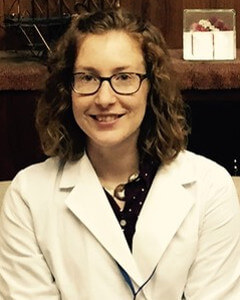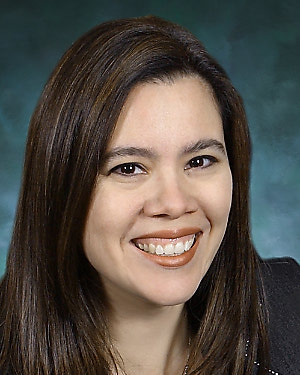Swallowing Investigation and Physiology Lab
Swallowing disorders (dysphagia) can be a devastating consequence after a stroke and other neurological disorders, trauma or surgery. Our research team aims to reduce the burden of swallowing disorders by learning more about normal and impaired swallowing. We use this knowledge to inform our diagnosis and treatment protocols in patients with dysphagia.
Our Team
Rachel Mulheren, Ph.D., CCC-SLP
Postdoctoral Research Fellow
Dr. Mulheren completed her doctorate under Dr. Christy Ludlow at James Madison University. Her research focuses on the neurophysiology and instrumental evaluation of swallowing. She is a licensed speech-language pathologist. She has taught graduate-level courses for speech-language pathologists and has presented her research nationally and internationally.

Research Projects
Neuroanatomical Basis of Swallowing Disorders After Stroke
Study Information: For many of the 5.4 million stroke survivors in the United States, communication and swallowing problems limit social interactions. This research will look at the areas of the brain that are associated with swallowing and communication difficulties if affected by stroke.
- Research goal No. 1: identify the neuro-anatomical locations associated with the coexistence of specific types of speech, language and/or swallowing disorders, as opposed to those that are only relevant to one.
- Research goal No. 2: determine the role of acute stroke severity and volume in the development of dysfunction.
Swallow Function in Older Adults: Characterizing Changes in Swallowing Physiology
Study Information: As we grow older, aspects of the swallowing mechanism change. Our lab studies the aging swallow by analyzing videofluoroscopic swallow studies (VFSS) for both young and elderly patients. Understanding changes between the VFSS results of young and elderly patients is important for preventing unnecessary diet recommendations and overdiagnosis.
- Research goal No. 1: determine how a standardized assessment reflects the functional aging swallow.
- Research goal No. 2: make clinicians more aware of the difference between young and elderly swallowing to prevent unnecessary treatments.
Upper Esophageal Sphincter (UES) Physiology: develop better understanding using 320-row area detector computed tomography (in collaboration with the Fujita Health University)
- Research goal No. 1: determine the effect of ischemic stroke on the timing of UES opening relative to swallow initiation.
- Research goal No. 2: characterize the dynamic relationship between laryngeal vestibule closure (a protective mechanism of the airway during swallowing) and UES dysfunction after stroke.
Upcoming projects
Our team also conducts research in the following area:
Swallowing Function and Palatability of Barium Preparations
Study Information: People with different genetic taste backgrounds may swallow differently, which plays a role in how pleasant or unpleasant a food or liquid tastes.
- Research goal No. 1: determine how people with different genetic taste backgrounds swallow.
- Research goal No. 2: determine how people with different genetic backgrounds rate pleasantness of food and liquid with and without barium.
Funding
Our funding comes from the National Institute on Deafness and Other Communication Disorders (NIDCD) under the National Institute of Health (NIH).
Featured Publications
- Supratentorial Regions of Acute Ischemia Associated With Clinically Important Swallowing Disorders. Authors: Marlis Gonzalez-Fernandez, Jonathan T. Kleinman, Paul K.S. Ky, Jeffrey B. Palmer, Argye E. Hillis
- Dysphagia in Stroke and Neurologic Disease. Authors: Marlis Gonzalez-Fernandez, Stephanie K. Daniels
Contact
Swallowing Investigation in Physiology
98 S. Broadway
Suite 403
Baltimore, MD 21287
Or
Physical Medicine & Rehabilitation
600 N. Wolfe St.
Phipps 174
Baltimore, MD 21287
Phone: 410-502-2438
Office fax: 410-502-2419

